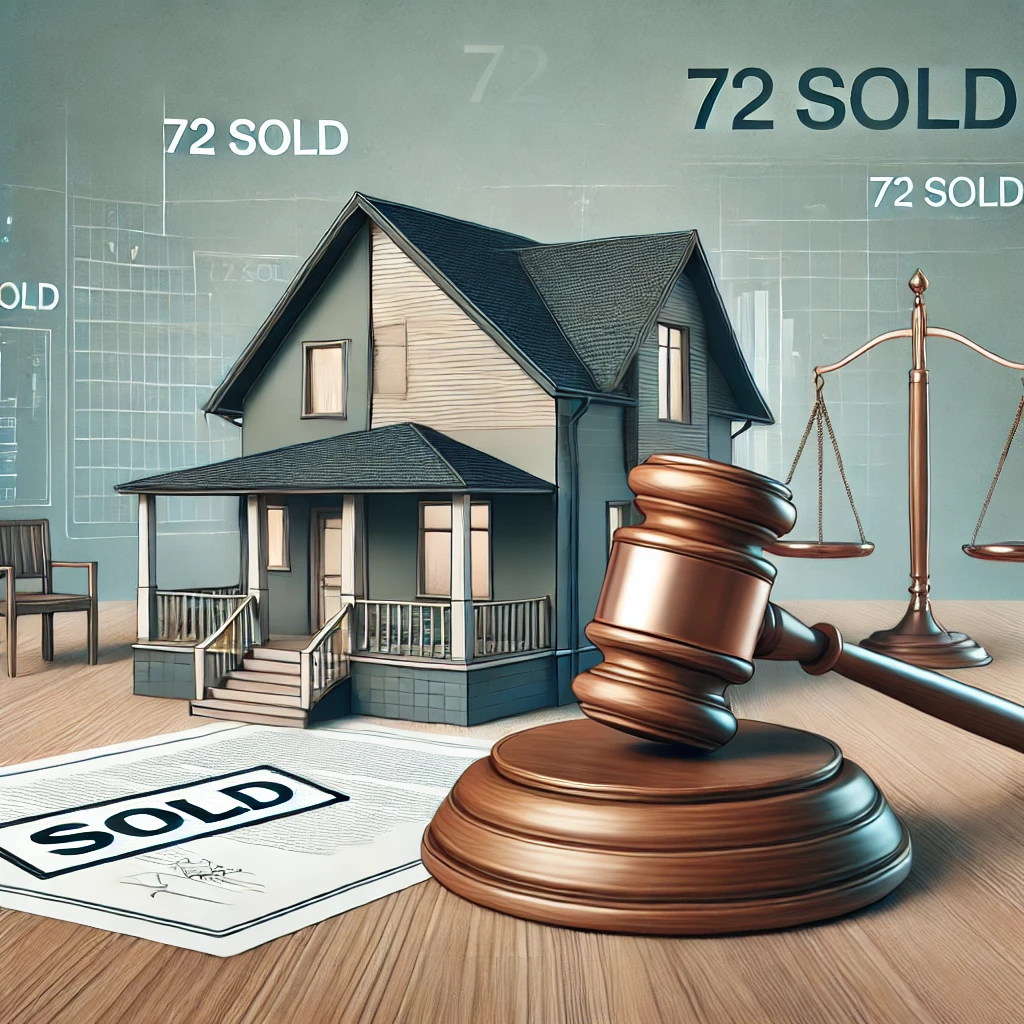The real estate industry is rife with innovation, and few names have risen as quickly as 72 Sold, a platform that promises homeowners a streamlined way to sell their properties in just 72 hours. However, with rapid success often comes scrutiny. Recently, the company has been at the center of a lawsuit, raising questions about its practices, promises, and the future of its business model. This blog dives deep into the lawsuit, the allegations, the company’s response, and what it all means for homeowners, agents, and the real estate market at large.
What is 72 Sold?
72 Sold is a real estate company that markets a unique and expedited home-selling process. Founded by Greg Hague, the company claims to offer a method that allows homeowners to sell their properties in 72 hours or less, often for top dollar. The process involves aggressive marketing, strategic pricing, and leveraging a network of buyers to create competition for listed properties.
72 Sold’s innovative approach has made waves in the industry, gaining attention through its bold claims and high-profile advertising campaigns. However, with popularity comes scrutiny, and the recent lawsuit has brought the company’s practices under the spotlight.
The Lawsuit: Key Details
Who Filed the Lawsuit?
The lawsuit against 72 Sold has reportedly been filed by a group of dissatisfied clients, competitors, or regulatory bodies—depending on the specific case being discussed. While the details of each lawsuit may vary, the common thread lies in accusations related to misleading claims and business practices.
Allegations Against 72 Sold
- False Advertising: Critics allege that 72 Sold’s promise to sell homes within 72 hours is misleading. While the company markets this as a standard outcome, detractors argue that it is not universally achievable and depends on various market conditions.
- Unfair Business Practices: Some competitors accuse 72 Sold of engaging in tactics that undermine traditional real estate methods. This includes claims of undercutting commissions or monopolizing local markets through aggressive marketing.
- Breach of Contract: Certain homeowners allege that they did not receive the service or results promised in their agreements with 72 Sold. This includes complaints about lower-than-expected sale prices or extended timelines.
- Regulatory Violations: Depending on the jurisdiction, there are claims that 72 Sold may not be fully compliant with local real estate regulations, especially regarding disclosures and advertising standards.
Timeline of Events
- Initial Complaints: The first rumblings of dissatisfaction surfaced on social media and online forums, with clients sharing mixed experiences.
- Formal Lawsuit Filed: Legal proceedings commenced when a group of plaintiffs formally filed their complaints.
- Media Attention: News outlets picked up the story, amplifying the controversy and bringing national attention to 72 Sold’s practices.
- Company’s Response: 72 Sold released statements addressing the allegations, defending their methods, and emphasizing their commitment to customer satisfaction.
The Legal and Ethical Implications
False Advertising Laws
In the United States, the Federal Trade Commission (FTC) regulates advertising practices to ensure they are truthful and non-deceptive. If 72 Sold is found guilty of false advertising, it could face fines, mandatory changes to its marketing, and damage to its reputation.
Breach of Contract Claims
If plaintiffs can prove that 72 Sold did not uphold its contractual promises, the company could be liable for monetary damages. This would also discourage potential clients from trusting its services.
Industry Impact
The lawsuit has the potential to reshape the real estate landscape. If 72 Sold’s practices are deemed unethical or illegal, other companies with similar models may also come under scrutiny. On the flip side, a favorable outcome for 72 Sold could validate its business model and encourage more innovation in the industry.
72 Sold’s Defense
Public Statements
72 Sold’s leadership has been vocal about their commitment to transparency and customer satisfaction. The company maintains that its methods are legitimate and effective, citing numerous success stories as evidence.
Legal Strategy
The company’s legal team has emphasized that the allegations lack merit, arguing that dissatisfied clients represent a small fraction of their overall customer base. They also contend that any delays or discrepancies are due to external factors, such as market conditions or buyer behavior.
Client Testimonials
To counteract negative publicity, 72 Sold has highlighted positive reviews and testimonials from satisfied customers. These stories aim to showcase the effectiveness of their approach and the trust they’ve built with many homeowners.
What Does This Mean for Homeowners?
If you’re considering using 72 Sold or a similar service, here are some tips to protect yourself:
- Read the Fine Print: Make sure you understand the terms and conditions of your agreement. Pay close attention to any guarantees or exclusions.
- Ask Questions: Don’t hesitate to ask the company how their process works, what you can expect, and what contingencies are in place.
- Research Alternatives: Compare 72 Sold’s services with traditional real estate methods and other innovative platforms to find the best fit for your needs.
- Consult a Professional: If you have concerns about the legality or fairness of a contract, consult with a real estate attorney.
Impact on the Real Estate Industry
The lawsuit against 72 Sold serves as a cautionary tale for the real estate sector. Here are some broader implications:
If you’re writing about legal cases or industry controversies, here are some tips to optimize your content for search engines:
- Target Keywords: Use relevant keywords like “72 Sold lawsuit,” “real estate legal cases,” and “home-selling controversies” throughout your blog.
- Structure Content: Break your blog into clear sections with headings and subheadings to improve readability and SEO rankings.
- Provide Value: Offer actionable advice, such as tips for homeowners or industry professionals, to engage your audience.
- Use Internal Links: Link to related content on your site to improve user engagement and SEO performance.
- Stay Updated: Monitor the latest developments in the case and update your blog to keep it relevant.
Conclusion
The 72 Sold lawsuit is a complex issue with far-reaching implications for the real estate industry. While the outcome remains uncertain, the case underscores the importance of transparency, accountability, and ethical practices in business. For homeowners, it’s a reminder to do thorough research and seek professional advice before committing to any real estate service. As the legal battle unfolds, it will undoubtedly shape the future of innovative home-selling methods and the trust consumers place in them.











